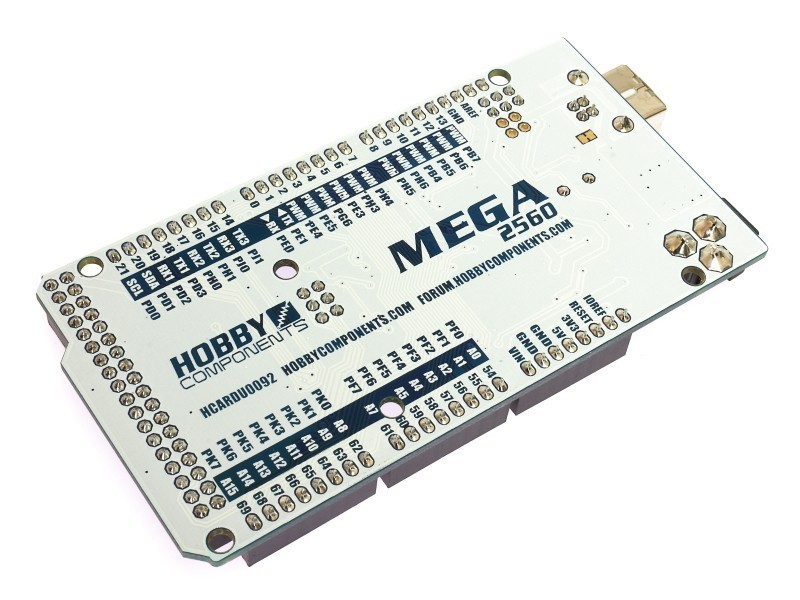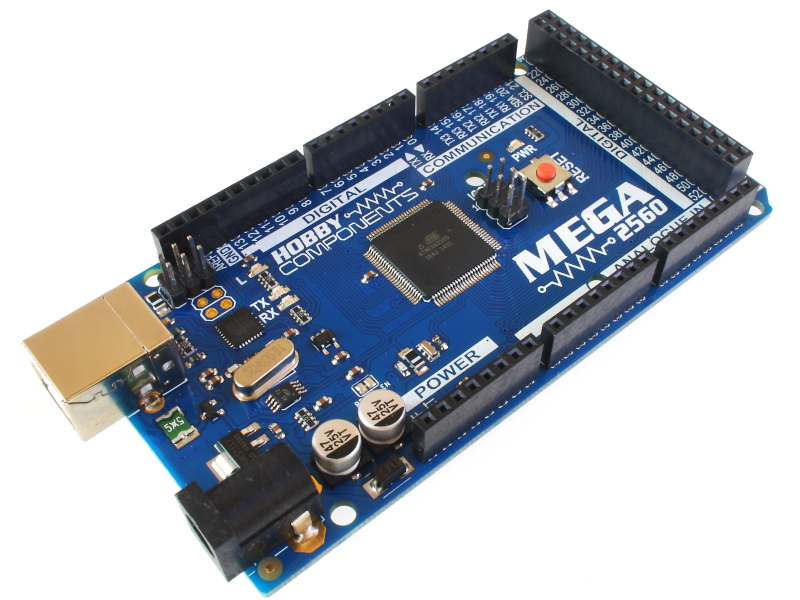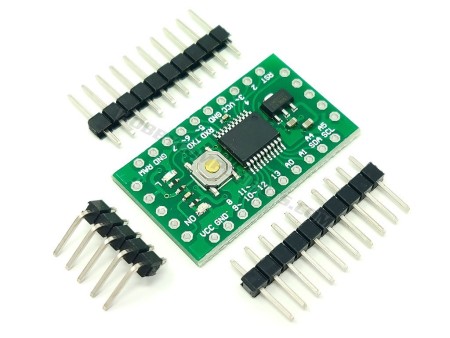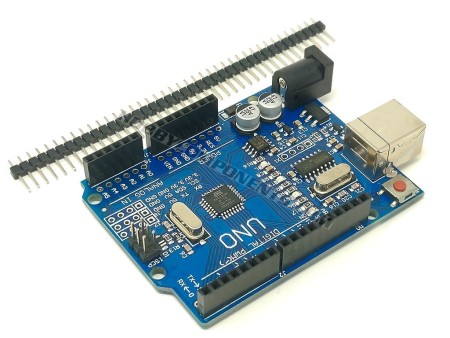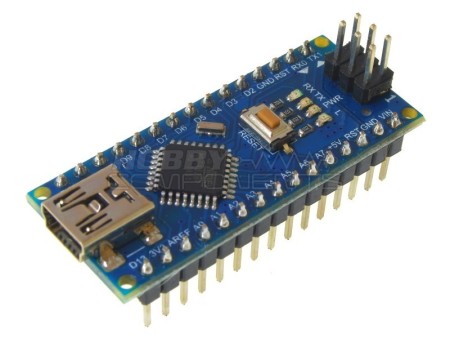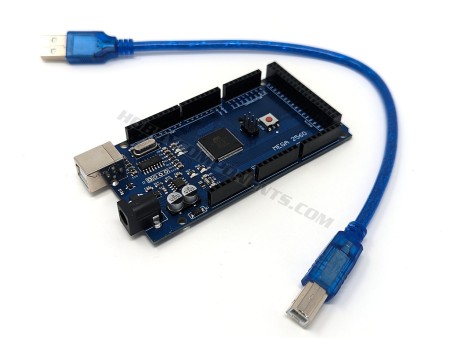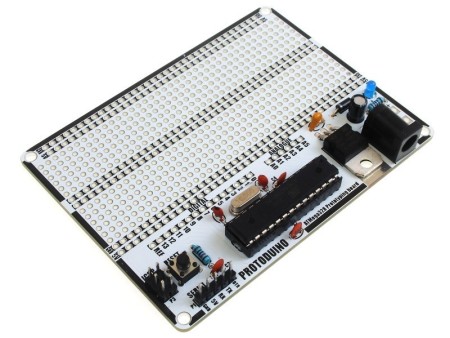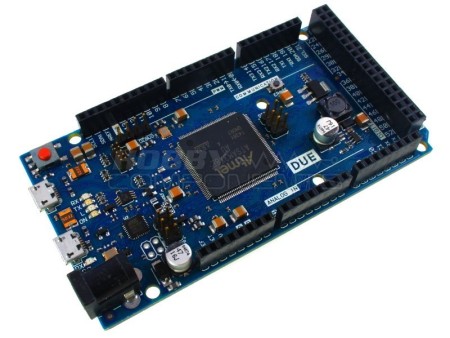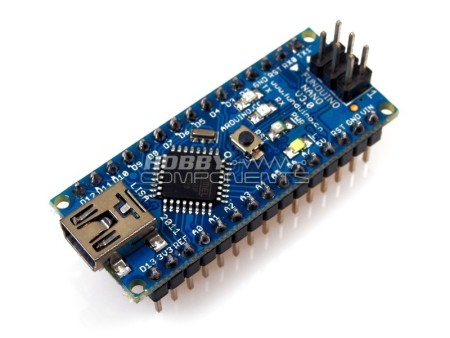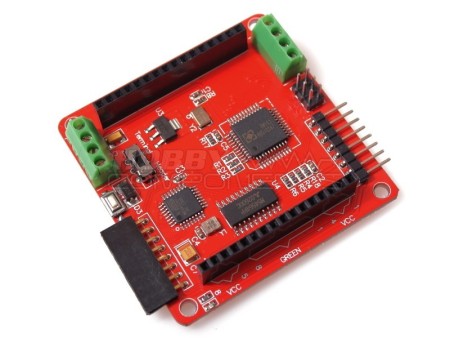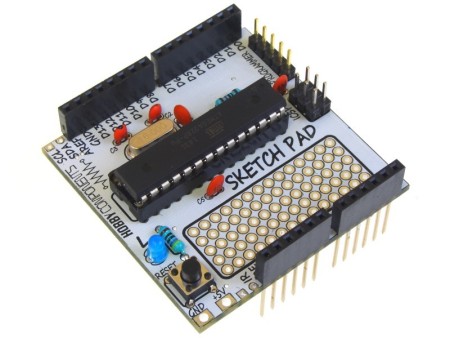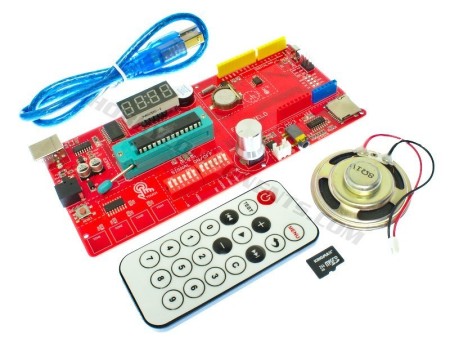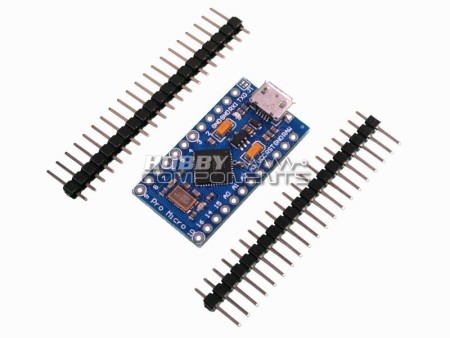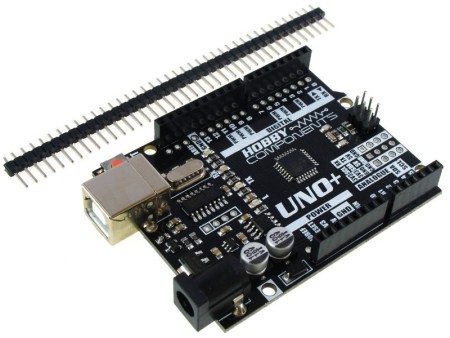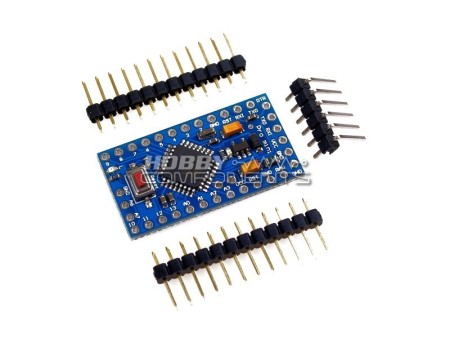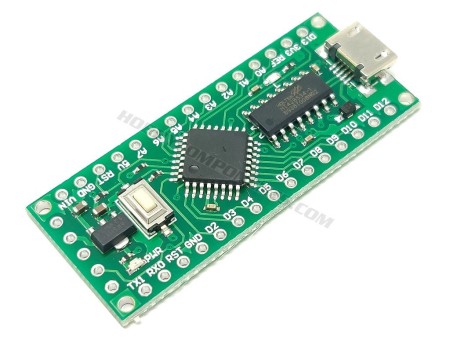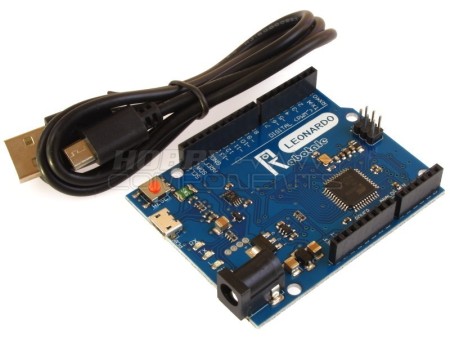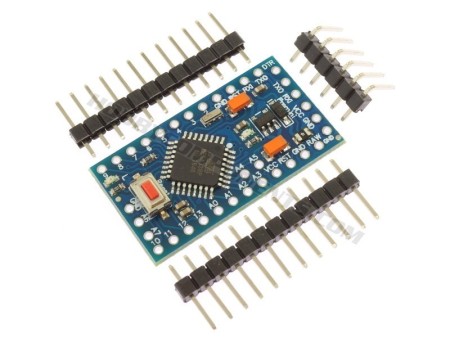Hobby Components Arduino Compatible R3 Mega
Our very own version of the popular Arduino Mega development board (HCARDU0092). It hast been designed from the open source revision 3 Arduino Mega reference design and comes pre-flashed with the Arduino bootloader. This board is 100% compatible with all shields and modules compatible with the Arduno...
Our very own version of the popular Arduino Mega development board (HCARDU0092). It hast been designed from the open source revision 3 Arduino Mega reference design and comes pre-flashed with the Arduino bootloader. This board is 100% compatible with all shields and modules compatible with the Arduno Mega. It is an ideal alternative if you are looking for a standard Arduino board but with significantly more Memory and IO compared to most other Arduino development boards. Its very low price together with the freely available Arduino development environment provides a cheap and easy way to get started.
The Arduino Mega 2560 is a microcontroller board based on the ATmega2560. It has 54 digital input/output pins (of which 14 can be used as PWM outputs), 16 analogue inputs, 4 UARTs (hardware serial ports), a 16 MHz crystal oscillator, a USB connection, a power jack, an ICSP header, and a reset button. It contains everything needed to support the microcontroller; simply connect it to a computer with a USB cable or power it with an AC-to-DC adapter or battery to get started. The Mega is compatible with most shields designed for the Arduino Duemilanove or Diecimila. The Mega 2560 is an update to the Arduino Mega, which it replaces.
Revision 3 of the board has the following new features:
-- 1.0 pinout: added SDA and SCL pins that are near to the AREF pin and two other new pins placed near the RESET pin, the IOREF that allows the shields to adapt to the voltage provided from the board. In future, shields will be compatible both with the board that uses the AVR, which operates with 5V and with the Arduino Due that operates with 3.3V. The second one is not a connected pin, that is reserved for future purposes.
-- Stronger RESET circuit.
-- Atmega 16U2 replace the 8U2.
Specifications
Microcontroller: ATmega2560
Operating Voltage: 5V
Input Voltage (recommended): 7-12V
Input Voltage (limits): 6-20V
Digital I/O Pins: 54 (of which 15 provide PWM output)
Analogue Input Pins: 16
DC Current per I/O Pin: 40 mA
DC Current for 3.3V Pin: 50 mA
Flash Memory: 256 KB of which 8 KB used by bootloader
SRAM: 8 KB
EEPROM: 4 KB
Clock Speed: 16MHz
Pinout available on our support forum.
Specific References
16 other products in the category
Arduino compatible Nano...
We are now stocking a USB C version of this board, which you can...
- Currently Out of Stock
Hobby Components Protoduino...
Designed as a means to easily go from your Arduino and breadboard prototype to a more...
Arduino Compatible Due
The Arduino Due is a microcontroller board based on the Atmel SAM3X8E ARM Cortex-M3 CPU (
- Currently Out of Stock
Colorduino RGB Matrix...
This Arduino compatible board is specifically designed to drive a 3 colour RGB LED dot matrix...
- Currently Out of Stock
Hobby Components Arduino...
Building your own hardware is always fun especially when it's combined with the Arduino...
- On sale!
Multifunction Uno...
This Arduino Uno compatible development board is the ideal option for anyone who just wants to...
- On sale!
- Currently Out of Stock
Arduino Compatible Pro Micro
The Pro Micro is similar to the Pro Mini, except for the fact that it utilises the ATMega32U4....
Hobby Components Uno Plus
This is our lower cost alternative to the standard R3 Uno, but in this case lower cost doesn't...
Arduino Compatible 5V Pro Mini
The Arduino Pro Mini is a microcontroller board based on the ATmega328. It...
Arduino Compatible R3 Leonardo
The Arduino Leonardo is a microcontroller board based on the ATmega32u4. It has 20 digital...

